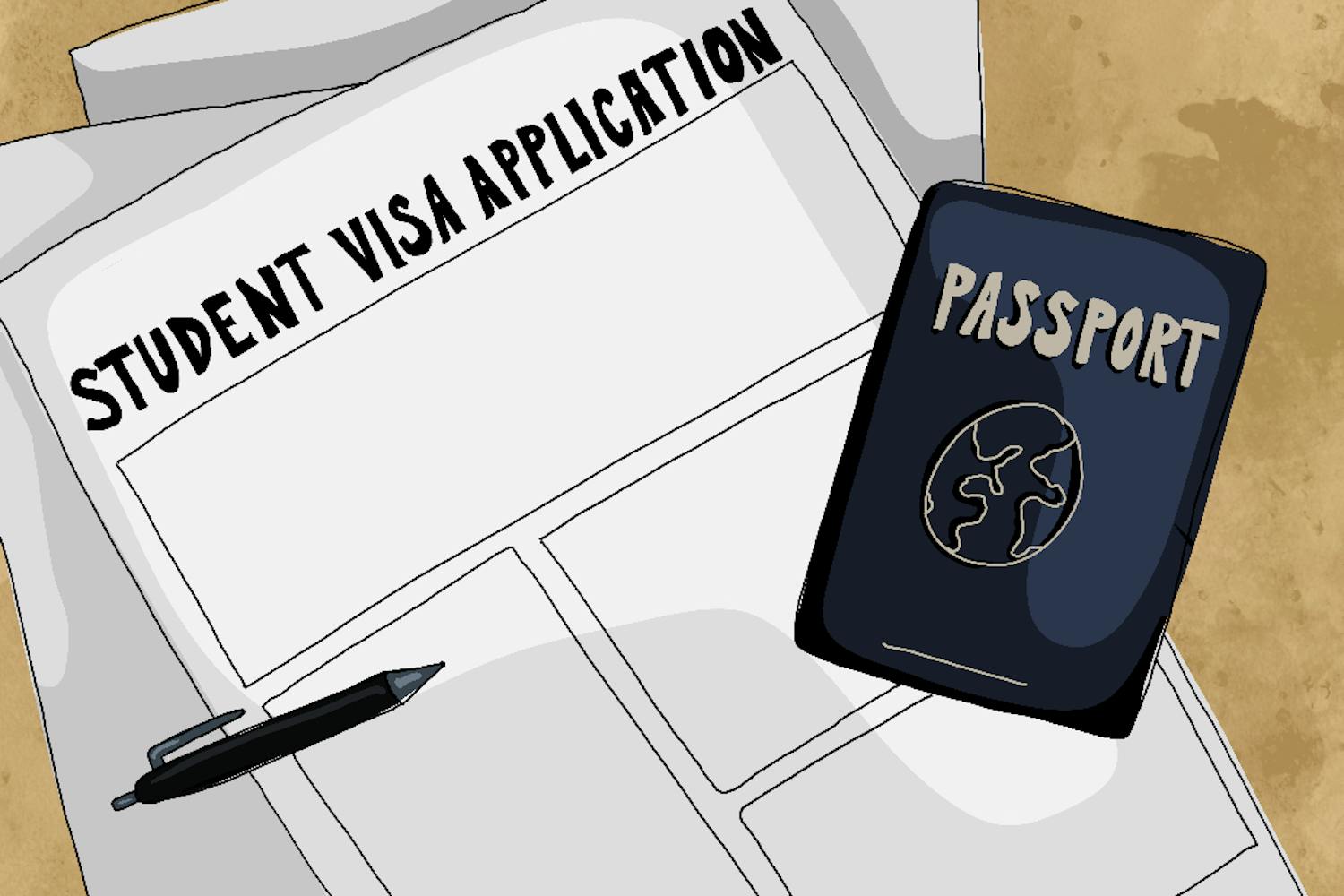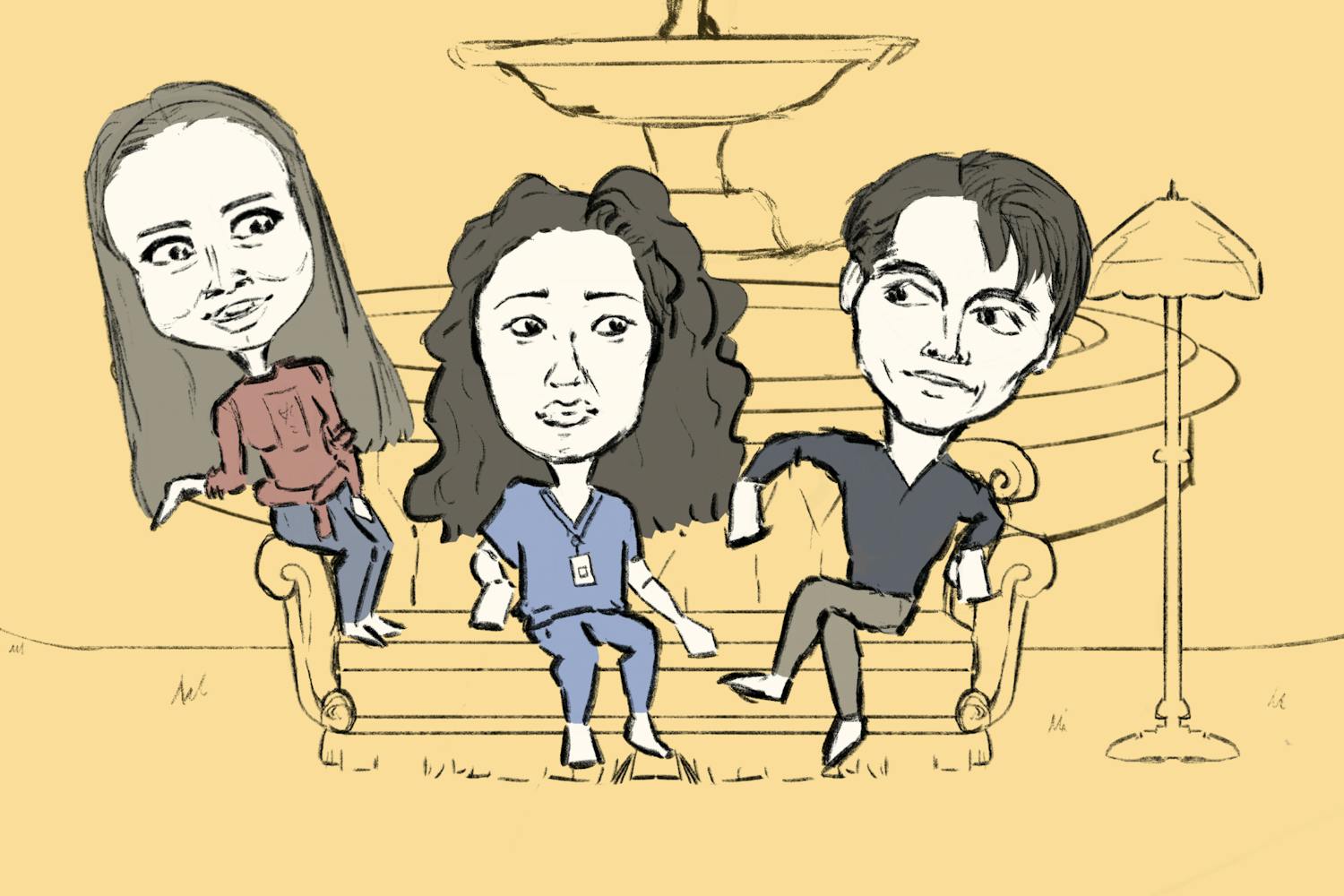Nicole Carroll graduated from ASU's Cronkite School in 1991. Now, she's preparing to take on the role of editor-in-chief at USA Today, which she will begin on March 7.
Carroll worked at the Arizona Republic for 18 years, holding positions in every department except sports. She finished her tenure as executive editor and vice president of news. In her last few days at the Republic, she sat down with The State Press to look back on her experiences in Arizona.
This interview has been edited for clarity and length.
How did you get started in journalism?
I got started in journalism in junior high. I wanted to work for my junior high newspaper in Canyon, Texas, but we didn’t have a newspaper, so my friends and I created one. We called it “The Eagle’s Eye” – we were the Canyon Texas Eagles – and we wrote stories and we typed them out and we cut them up and we put them on legal-size paper and we copied them in the office and distributed them at lunch time. We created our own newspaper, and I just loved it. I’ve always loved journalism.
So did you continue on through high school, then? Did your high school have a paper?
I did, I actually worked for the high school yearbook instead. Then when I got to ASU, I worked for the yearbook before The State Press, so I did sort of both sides of it.
Tell me a little bit about your time at The State Press.
Oh, it was great. It was great. It’s funny, I was telling someone the other day – I started off on the yearbook and I was an education major. I wanted to work for The State Press, but I was really intimidated because these were really great reporters and I was really impressed. They had tryouts one day … we had a meeting and they gave us all assignments – we had to go cover something. They ended up using my story in The State Press, my tryout story, and they offered me a job as a reporter, and I was so excited.
I don’t know how it works now, but I started off as a GA (general assignment) reporter. Then I became the opinion editor at some point and then the State Press Magazine Editor, so I held different jobs in the newsroom.
What were your greatest takeaways from your experience at The State Press and Cronkite as a whole?
It really deepened my love of journalism. The professors at Cronkite were outstanding and just gave us a lot of attention and a lot of help as we tried more difficult assignments. They were there to support us and show us we could do it. You could do an in-depth story, you could do an investigative report because they were there to guide you. It definitely fueled my ambitions because they helped us see it was possible.
And at The State Press, we ran it. It was a student-run newspaper so we really had to make difficult decisions. We had the same decisions you have in any newsroom about ethics and about coverage and about all the myriad things that come up in the course of news gathering, we had to confront and decide as students. That was great training.
The adversity that women face as reporters has really come into the limelight in Arizona, especially with the Republic's coverage of the Don Shooter situation. In your experience, have you had to tackle sexual harassment or adversity in your reporting? How do you think female reporters could best go about that in their careers?
I’m not sure if I would characterize it as harassment or adversity, but there have certainly been incidences where I’ve been treated differently because I’m female.
When I was in El Paso a fellow reporter and myself started almost at the exact same time, but he was male and I was female. I’ll never forget we had this publisher who would come in and stop at his desk and talk to him and invite him to golf and do all these things. We had literally started within a month of each other and I was invisible, almost.
There were things like that, but I worked really hard and I became noticed. That’s just what you do, you know? You work really hard.
Out in the community there have been times, especially when I was younger, that newsmakers didn’t take me as seriously as my male counterparts. But, again, you just do your job. You ask the tough questions and you write accurate stories and then they begin to respect you and realize that you are a professional news reporter.
What advice do you have for aspiring young journalists?
I think we need you to be leaders. We need you to help us – we’re in the middle of a historical transformation, which I find exciting, and we need everyone involved in that transformation to bring the best ideas and to push them. Certainly you’ll be asked to do things and you’ll do them, but I hope you’ll also suggest things and push for your ideas.
We need you to care deeply about the First Amendment and its protections. It’s our duty to uphold it, it’s each generation’s duty to uphold it, to fight for those rights either in the court system or the legislature. We need your generation to continue that fight. It’s really important.
We need you to bring that same passion to journalism, in whatever form, as the generations before you. It’s really important to democracy that we have fair, accurate, ethical information out there in whatever form it’s going to take, and we need people passionate about that service.
Reach the reporter at aegeland@asu.edu or follow @alexis_egeland Twitter.
Like The State Press on Facebook and follow @statepress on Twitter.




